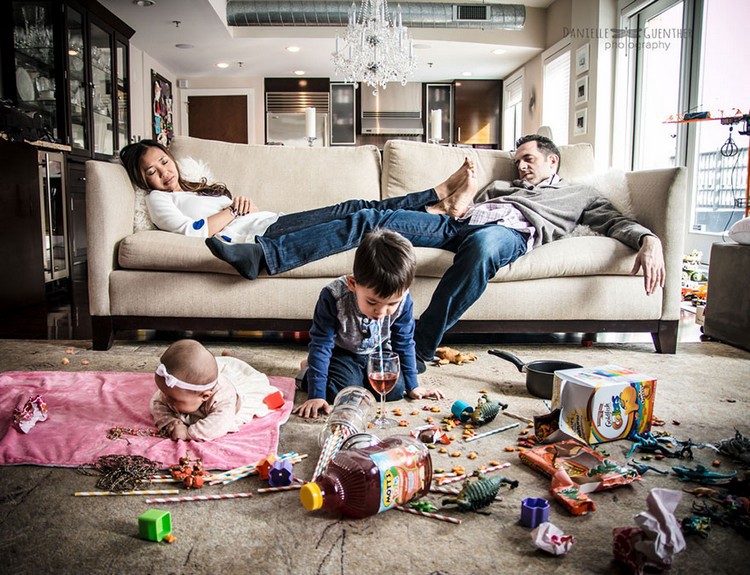American motherhood is stressful and rushed. Our children’s emotional wellbeing is cast aside in favor of cognitive development. Is this what we want?
In a recent op ed piece called “The Panic of American Parenthood”, Pamela Druckerman, the author of Bringing Up Bebe, makes great arguments for why America should offer a real maternity leave policy and financial support for mothers of all socioeconomic levels. I found this article compelling and important. However, it focused on the happiness and well being of mothers rather than the mental health of children. This is not on common as the benefits of maternity leave are often seen as for the parents, especially the mothers, in social and economic terms. In fact, many of the people involved in the push for maternity leave policies are politicians, economists and journalists rather than mental health professionals. However, there is a case for parental leave benefiting the mental well-being of the child as well.
I am a psychoanalyst and parent guidance expert who has just written a book called Being There: Why Prioritizing Motherhood in the First Three Years Matters. In it, I underline the importance of a mother’s or primary caregiver’s emotional and physical presence as much as possible in the first three years to insure the emotional well being and mental health of our children. As a result, parental leave is a policy I’m largely in favor of.
There has been a 400% increase in antidepressant use in children, adolescents, and adults in the last 20 years. Nearly 1 in 10 Americans over 12 are now taking antidepressant drugs. I believe this is the result of a shift in our societal focus to self-determination and materialism rather than on a emotional approach in prioritizing emotional security. For our children we care more about them reading at the age of 3 rather than looking at their emotional security and needs as the main developmental objective.
I want to wave the red flag that our policies are not just harming mother’s happiness but harming our children. When our children are harmed, mothers and fathers cannot be happy and society is impacted negatively. The well being of mothers is critical; a depressed, stressed, overworked and undervalued mother cannot be emotionally and physically available to her children. Children need their mothers or primary caregivers as much as possible in the first three years. More is more. The more we give them emotionally and physically in this critical period of brain development the more emotionally secure and mentally healthy they will become.
In our society, we treat children as commodities: accessories to dress up as we please, boast of their accomplishments and get a ticket into a seemingly prestigious club of motherhood. After decades of scholarly research and clinical evidence to the contrary we have regressed to Victorian times where children were seen and not heard and the needs and desires of the adults were primary.
Parental leave is the key. It symbolises society’s recognition of the critican importance of a mother, father, or caregiver’s physical and emotional presence to children, especially in their baby and toddling years. A future of emotionally secure and mentally sound generations is not only good for families, but generations to come.
So I love Pamela Druckerman’s article. She too believes that motherhood, though always eventful, should not be stressful. She is a comrade in arms in a battle I am also fighting. But my approach is to frighten you as the reader, politician, journalist, employer, mother and father; to elevate your anxiety about a growing mental health crisis in our society which is out of control and which cannot be remedied unless we not only value mothering and parenting as critical in the first three years but put your money where your mouth is as well.
Erica Komisar is a veteran psychoanalyst and parent-coach who has been in private practice for 25 years. A graduate of Georgetown and Columbia Universities and The New York Freudian Society, Ms Komisar is a psychological consultant bringing parenting and work/life workshops to clinics, schools, corporations and childcare settings including The Garden House School, Goldman Sachs, Shearman and Sterling and SWFS Early Childhood Center. She lives is New York City with her husband, optometrist and social entrepreneur Dr. Jordan Kassalow, and their three teenage children.
Pre-order her book, Being There: Why Prioritizing Motherhood in the First Three Years Matters and follow her on Twitter @EricaKomisarCSW and on Facebook. Sign up to her newsletter here
Originally published at medium.com


